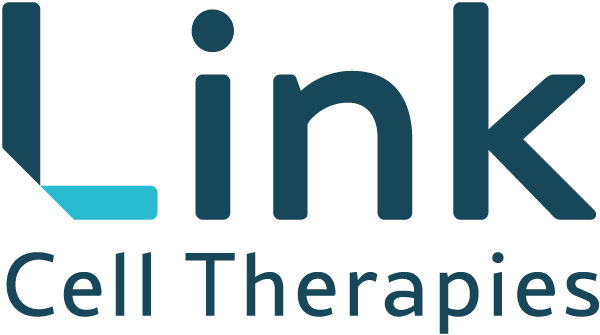— LINK CARs specifically activate T cells and eradicate tumors in vivo while preserving normal tissues, paving the way to a new generation of cell therapies —
SAN CARLOS, Calif., March 20, 2023 — Link Cell Therapies, a biotechnology company expanding the universe of solid and hematologic cancer antigens that can be safely and effectively targeted with T cell therapies, today announced a milestone publication in the journal Nature. The paper, titled “Co-opting signaling molecules enables logic-gated control of CAR T cells,”details the company’s LINK CAR technology, a logic-gated system engineered to bypass traditional T cell signaling machinery to optimize and customize CAR T cell responses, killing solid tumors without on-target, off-tumor toxicity.
Link Cell Therapies was launched in May of 2022 with $12M in seed funding by Samsara BioCapital and Sheatree Capital. The company is also developing two additional platform technologies beyond LINK, including ZAP and BOOST, to overcome some of the most significant hurdles facing CAR T therapies. ZAP is geared to reduce T cell exhaustion by engaging the ZAP-70 signaling pathway. BOOST amplifies CAR and TCR signaling to avoid T cell evasion associated with low target antigen expression.
“While CAR-T cells have revolutionized the treatment of hematologic cancers, they have not achieved the same success in solid tumor cancers. One reason is that in solid tumors, it is difficult to find targets that are expressed on cancer cells and not also found on healthy cells,” said Robbie Majzner, MD,co-founder of Link Cell Therapies and Assistant Professor of Pediatrics in Hematology/Oncology at Stanford University. “Drawing insights from native T cell signaling networks, we have successfully engineered a logic-gating system that requires two antigens expressed on the same tumor cell to selectively control CAR T cell activity.”
Pre-clinical findings published in the March 15th issue of Nature show that the downstream signaling molecules LAT and SLP-76 can be repurposed into surface receptors that enhance the function and specificity of CARs through Boolean logic AND-gating. When paired together, LAT and SLP-76 enabled AND-gating and further mediated robust CAR activity in mouse models of cancer.
“Logic-gates are an increasingly important focus in oncology drug discovery,” said Crystal Mackall, MD, co-founder of Link Cell Therapies and Founding Director of the Stanford Center for Cancer Cell Therapy. “Link Cell Therapies’ LINK CAR is the first true and reversible Boolean logic AND-gate system in which recognition of two antigens expressed on the same cell is required to achieve killing of tumor cells while sparing normal cells.”
Conventional logic CAR systems have shortcomings in either specificity or efficacy in vivo. Using an in vitro toxicity model, the study authors confirmed that competing logic-gate systems mediated unwanted bystander killing of single antigen positive cells, whereas LINK CAR T cells eradicated double-positive tumor cells and avoided single-antigen-positive cells. When tested in an in vivo setting, only LINK CARs showed tumor regression without any signs of on-target, off-tumor toxicity.
Link Cell Therapies plans to investigate its LINK CAR platform further using patient samples and single-cell technologies to identify and validate safe and effective targets.
“Samsara prides itself on partnering with founders to launch companies that are advancing truly innovative technologies in difficult therapeutic areas where treatment options for patients are limited,” said Abe Bassan, Interim President of Link Cell Therapies and Principal at Samsara BioCapital. “These advances could have a broad impact, not only in the field of cancer immunotherapy but also as researchers demonstrate the impact of CAR T cells in additional therapeutic areas.”
About Link Cell Therapies
Link Cell Therapies was founded by Robbie Majzner, Assistant Professor of Pediatrics in Hematology/Oncology at Stanford University, and Crystal Mackall, MD, Founding Director of the Stanford Center for Cancer Cell Therapy, in partnership with Samsara BioCapital to tackle one of the most significant challenges in cancer cell therapy – the development of safe and effective CAR T agents for patients with solid tumors. The company’s unique logic-gate technology enables a new level of precision and safety necessary to deploy CAR T beyond current indications. Link’s AND-gate CAR Ts require co-expression of cancer targets to drive cell cytotoxicity, thereby providing greater tumor specificity than what has been achieved to date with existing logic-gate technologies. Combined with additional platforms under development, we are advancing a suite of exciting therapeutic programs that promise to unlock the potential of CAR T therapy across multiple important solid and liquid cancer indications. To learn more, please visit www.linkcelltx.com.
About Samsara BioCapital
Samsara BioCapital is a new breed of biotech investment fund focused on translating cutting-edge biology into new therapies to treat patients with unmet medical needs. Founded in 2016 by Srinivas Akkaraju, M.D., Ph.D., our team of scientists, investors, and entrepreneurs takes a long-term view on value creation across all stages of public and private life science companies. We believe in a collaborative, hands-on approach, working closely with entrepreneurs to harness exciting scientific advances and build leading companies. Samsara actively manages assets on behalf of endowments, foundations, and family offices. For more information, please visit www.samsaracap.com.

